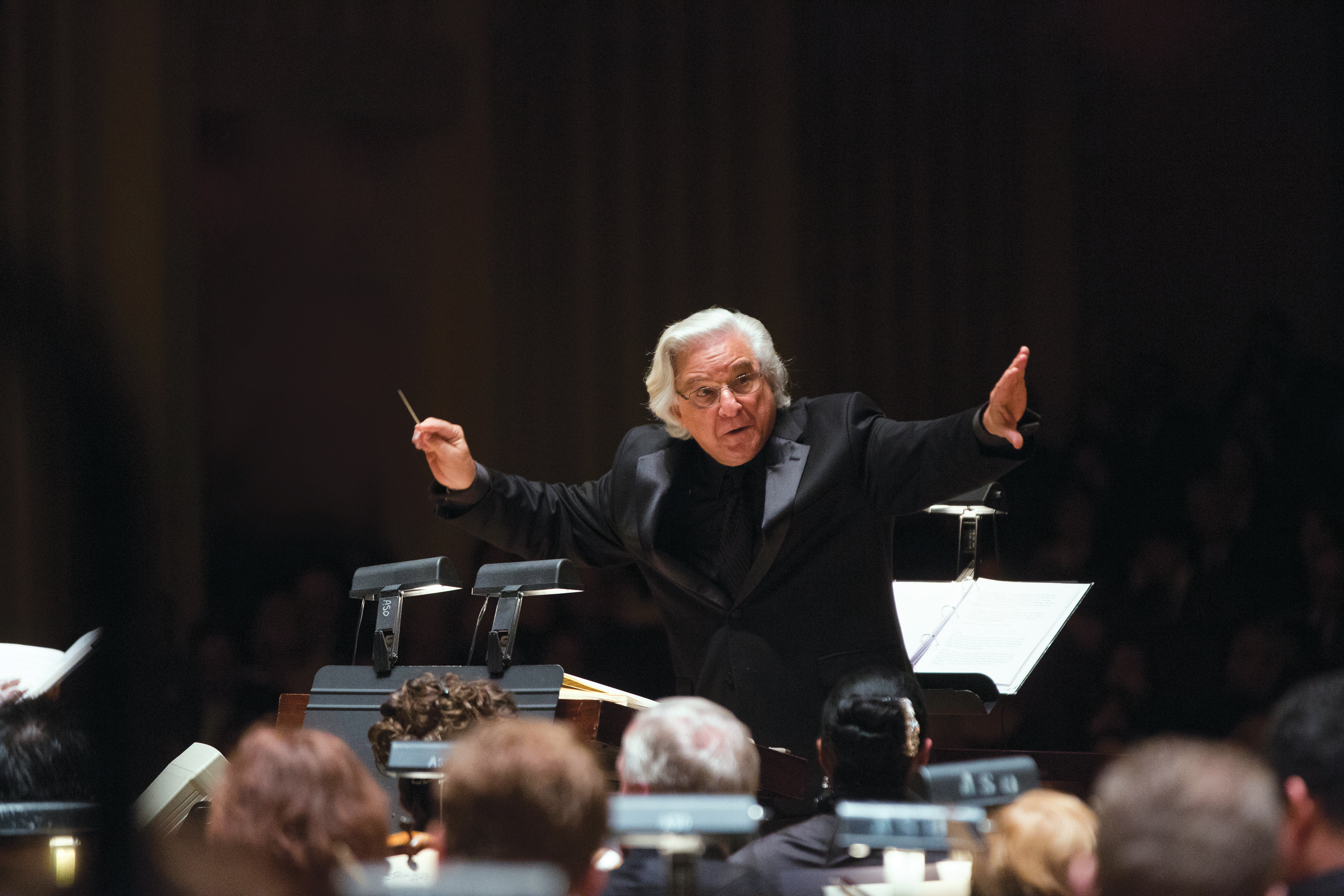

Decades after the end of World War II, Germany continues a reconciliation with its past as music Professor Murry Sidlin saw firsthand when he conducted a concert in Berlin featuring the musical compositions of Holocaust victims.
The concert — Hours of Freedom: The Story of the Terezín Composer — was performed on May 8 by invitation of the German government. The concert-drama was created by Sidlin using music from 15 composers imprisoned during World War II in the Nazi concentration camp Terezín, in what is now the Czech Republic. Through a combination of music, narration, and multimedia elements, the concert memorialized the talented prisoners who secretly created “cultural miracles” within the walls of Terezín.
Sidlin, who teaches conducting and music from the Holocaust era at Catholic University, completed the concert performance in 2015. He has since brought the music and the history of these concentration camp composers throughout the world, including to New York City; Washington, D.C.; Jerusalem, Israel; and Terezín itself.
But the American conductor said bringing the concert to Germany was distinctly different.
“When it’s the German government that asks you to illuminate the music of those who were murdered by the Nazis, that is a monumental invitation. It’s humbling and inspiring,” said Sidlin.
The invitation to perform in Berlin came after Claudia Roth, German culture minister, attended the Hours of Freedom concert in Prague last November and told Sidlin they “must bring this concert to Germany.” Less than a week later, she informed the maestro they were at work planning the concert.
Sidlin said the concert, held on the anniversary of the surrender of all Nazi German forces to the Allies, deeply moved the audience, who offered numerous ovations following the performance.
“I felt that it was much more than a concert; we were messengers,” he said. “This was our privilege to bring this music home and to share what we have learned with a very appreciative musical audience.”
From 1940 to the end of the war, approximately 150,000 Jews went through Terezín, with only 17,247 surviving.
In the early 1990s, Sidlin stumbled on a book about the music of Terezín, compelling him to research and discover more about the murdered composers who wrote it.
It was not easy to find the many original compositions from Terezín. Some of the music was in bad shape and some had been published obscurely.
“I had to go digging, but I was determined that this music would be heard,” said Sidlin.
Sidlin categorized the various composers’ works into nine sections that include Longing, Hope, Pure Entertainment, The Broken Heart, and The Eyewitness, among others.
“People asked me, ‘What is the music like?’ It is as different as the composers were different,” Sidlin said. Inside the music, there were even messages, thoughts that the composer wanted to send, he said.
Sidlin discovered that the cultural life in Terezín was founded largely on the initiatives of Rafael Schächter, a Romanian composer who famously assembled 150 fellow inmates into a chorus, teaching them to sing Giuseppe Verdi’s Requiem Mass, which they called The Defiant Requiem, by rote.
Sidlin was inspired to start The Defiant Requiem Foundation in 2008, a platform to preserve the memory of the Terezín prisoners. He also created a concert-drama Defiant Requiem: Verdi at Terezín, which combines Verdi’s music with video testimony from survivors of the original Terezín chorus and 1944 Nazi propaganda footage of the concentration camp.
Sidlin continues to bring Hours of Freedom to audiences around the world, giving the Holocaust composers something of the career they never lived to have. — C.E.